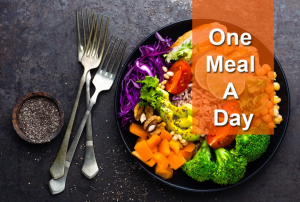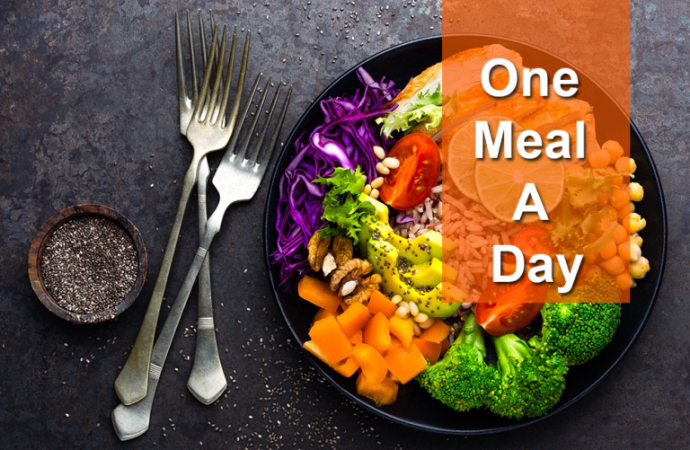Introduction: Navigating Nutrition in One Meal a Day The OMAD (One Meal a Day) diet presents challenges in maintaining balanced nutrition due to the limited eating window. This article explores strategies to optimize nutrient intake, meal composition, and food choices while adhering to the constraints of the OMAD diet. Understanding Nutritional Requirements on OMAD Clarifying
Introduction: Navigating Nutrition in One Meal a Day
The OMAD (One Meal a Day) diet presents challenges in maintaining balanced nutrition due to the limited eating window. This article explores strategies to optimize nutrient intake, meal composition, and food choices while adhering to the constraints of the OMAD diet.
Understanding Nutritional Requirements on OMAD
Clarifying the daily nutritional needs and challenges in meeting them within a single meal, emphasizing the importance of nutrient-dense foods for sustained health.

Image By: https://glaminati.com/
Meal Composition and Nutrient Density
Exploring optimal meal composition by prioritizing nutrient-dense foods, including lean proteins, whole grains, healthy fats, fruits, vegetables, and adequate hydration within the confined eating window.
Micronutrient Considerations
Addressing the importance of essential vitamins and minerals, highlighting sources and strategies to ensure sufficient micronutrient intake despite limited meal frequency.
Protein Adequacy and Muscle Maintenance
Discussing strategies to incorporate sufficient protein into the OMAD meal to support muscle maintenance, exploring sources and optimal quantities for individuals’ needs.
Fats, Carbohydrates, and Energy Balance
Balancing macronutrients, understanding the role of fats and carbohydrates, and achieving energy balance within the OMAD framework for sustained energy levels.
Meal Planning and Food Choices
Guidelines for effective meal planning, diverse food choices, and creating well-rounded meals to maximize nutrient intake and avoid deficiencies on a restricted eating schedule.
Importance of Hydration and Fluid Intake
Emphasizing the significance of adequate hydration during fasting periods and incorporating fluids to support digestion and overall well-being.
Supplementation and Nutrient Fortification
Addressing the potential need for supplements or fortified foods to bridge nutrient gaps and enhance nutritional adequacy on the OMAD diet.
Strategies for Specific Dietary Preferences
Tailoring OMAD meal strategies to accommodate specific dietary preferences, such as vegetarian, vegan, or other dietary patterns, while meeting nutritional needs.
Balanced Nutrition for Long-Term Health
The importance of consistent, balanced nutrition on the OMAD diet for long-term health, addressing potential risks and benefits, and fostering sustainability.

Image By: https://thepilotworks.com/
Conclusion: Achieving Optimal Nutrition on the OMAD Diet
In conclusion, optimizing nutrition within the confines of the OMAD diet requires strategic meal planning, nutrient-dense choices, and attention to meeting daily nutritional needs. Implementing these strategies ensures balanced meals and sustained health on a restricted eating pattern.

















Leave a Comment
Your email address will not be published. Required fields are marked with *